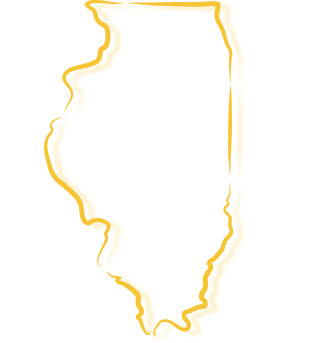Car Crashes: Questions About Coverage

By Zane T. Cagle | September 26, 2023 | Car Accidents, Featured, Personal Injury
Let us be clear–we do not sell insurance. We DO represent injured people in car crashes who are navigating the insurance claim process, thus “we’ve seen a thing or two“. We do fight for our clients against auto insurance carriers who fail to pay fair injury compensation claims. They often do fail to do so without strong advocacy and litigation by a lawyer. Most individuals do not really know the extent of their coverage and it is not due to stupidity. The topic of insurance is not a party starter. To many, insurance seems like an abyss with overly complicated terms and full of exclusions and exceptions.
When it comes to making an insurance claim of any kind, few people contact their insurance company feeling confident that all will be covered. Generally, when an insurance company agrees on a fair price for your car after a crash, you are just relieved and surprised. The world of claims seems full of hurdles and exceptions. If you are lucky, you have paid premiums for decades rarely applying for a benefit. Yet, you are legally required to buy auto insurance. From interactions with clients over 20 years and our own personal experiences, we know the unwritten rule is that you must buy it but never really use it.
Crashes are Never Expected
Just as a car crash is never “expected”, you just never know when you are going to need to use your auto insurance. If crashes were predictable, what a money saver right in every way? As soon as your coverage lapses or you opt for cheaper coverage, you have a crash. Our attorneys represent those injured in motor vehicle collisions, and daily we talk to people hit by a driver with no insurance. Operating a vehicle without insurance is actually a huge problem. You only get up close and personal with this fact after you have been in a crash. We all know the reasonable explanations of why a driver lets insurance lapse, but the result is the same. Some feel because they are “safe” drivers and it will always be someone else’s fault if they are in a crash. Let’s say that is even logical. Then, another like minded driver viewing themselves the same way collides with your carefully driven car an the intersection. So, two safe, confident uninsured drivers in an crash have serious problems and personal loss. Cars rarely crash as a pure coincidence. Crashes are caused by one or more driving errors. A crash with no coverage is a big loss and it can be devastating for the injured.
If you are hurt, the loss of a car is the least of concerns. The cost medical treatment dwarfs the cost of a vehicle. Serious injuries require months of medical treatment or worse, permanent changes.
So, what to do if the other driver has no insurance? If the other driver does not have insurance or flees, you have an “uninsured motorist claim” against your insurance carrier. Sometimes people get protective of their insurance company, because of fear their rates will go up. But, coverage is the benefit for which we all pay years of premiums.
Understand Your Coverage- Quick Simple Information
You do not have to be a certified insurance broker or even read the 30 page policy to understand the basics of your policy. Ask specific questions of your sales agent.
Often people are primarily concerned about being legal and covering the cost of the car. Yet, car crashes are the number cause of serious injuries and death. When we operate and ride in vehicles, it is usually the most dangerous activity we do daily. We don’t like to think about it or we would never go anywhere. Failure to have coverage in an injury incident can cause an enormous strain on finances even if you have the great health insurance. Most people know the terms “liability” and “full coverage”. Unfortunately, not everyone understands the terms. Again, lack of understanding is not stupidity. Fact: We are in 4-6 crashes in our life time. Hopefully, those are not serious crashes, but having coverage makes a difference every time.
Liability Coverage
Please understand that liability coverage is minimal. It does not apply to your car or your injury expenses. With liability coverage, you are saying that you can afford a total loss on that car. Yet, we rarely speak to someone who can actually afford to completely lose their car. Laws require you to have full coverage if there is a loan for obvious reasons. Creditors will cover their losses or you will cover their losses. Liability insurance only applies to the other driver’s property and injury if the crash was caused or contributed to cause by you. Thus, fault disputes can result in months of debate with no promise of recovery for your vehicle.
The important thing about liability coverage is that coverage protects you from suit against your property or garnishment of wages. If you are in a crash where someone else is injured, it is not just your lost vehicle, but you can be assessed at fault for the crash including property damage and injuries. That figure can easily get into six figures quickly if someone is hurt. Liability essential means “fault”, so you are buying “fault coverage” meaning the other driver can not pursue your house, car, and property. Having minimum liability may be really inadequate when it comes to protecting your car or your body, but it protects from judgements and suits personally. Obviously, if you are impaired, driving in a dangerous way or purposely run into someone, you can still be criminally charged regardless of level of insurance.
Full Coverage
This term is a confusing one for many and we blame the insurance industry for not fully explaining. Often people think they must have just all kinds of coverage if they have “full coverage”, it will cover everything. However, you can have barely over $25,000 (minimum) even with a full coverage policy. The more you increase your coverage, generally, the more the coverage costs. Let’s be honest, $25,000 does not go as far as it once did. Usually, in those “full coverage” policies, there will only be $1,000 to $5,000 in medical recovery payments. Most of the time, one will have to fight their insurance company to get the med pay rightfully owed. Full coverage does not mean that a rental car is included. After a crash is not an ideal time to discover you have few benefits. At minimum, look at the coverage listed on your insurance card. The bigger number usually applies to other people you may accidentally injure, not yourself.
Why Does Your Coverage Matter if Someone Else is At-Fault
Let’s go back to the beginning of the article about coverage. If the other driver has no insurance and you are also uninsured, issue is done. No insurance company to make a claim. Many think they will just sue the individual driver. Unfortunately, that is rarely successful. Suing an individual verses another driver’s insurance company is challenging. It may not be a challenge to prove your case, the issue is collection of fees. How do you sue an individual if they do not own anything free and clear? Simply, people that own stuff tend to insure it in order to keep it. How to you collect a meaningful sum from someone who cannot afford to insure their car? It’s not a character flaw to have little money. If you have heard the phrase, “you cannot get blood from a turnip”, you are familiar with trying to collect fees/damages against someone who has little.
Example: Let’s say a man named John Smith runs a red light and slams into your driver’s side door. Your car is totaled and you are laid up in the hospital with broken bones. You discover Mr. Smith has no auto insurance and your insurance lapsed last month. Clearly, there is no insurance claim to make as there is no company. So, it seems Mr. Smith owns a house. He has assets right? Well, like most being listed as the owner of a house does not mean he owns the house. Most home owners have a mortgage. Thus, you don’t want to own his mortgage. Furthermore, most people put joint titles on their property. So, if John Smith may have a spouse or a family member in joint title on the house, and you cannot pursue he does not solely own. Thus, how does one try to collect an asset when there is no asset.
If you have full coverage, then you can make a claim against your own insurance. If the report is clear that it is not your fault, then your own insurance will probably not hit you with a rate hike. Again, they might simply increase your rates because you were in a crash of any kind. If you are hurt and the other driver is uninsured, you are going to need to make an uninsured motorist claim for your property and injuries. You do not have to be very hurt to rake up serious medical bills. Standing on principal that you just don’t want to make a claim on your auto insurance so your rates won’t hike is not logical. If you are hurt and have co-pays or worse, no heath insurance, you have no choice. It would be absurd to try to absorb all of your medical costs and car costs just so you could avoid a five percent rate hike. Then, again, your auto insurance company may raise your rates anyway simply because you were in a crash whether or not you made a claim. Odds are the rates will go up, so pursue the benefits of coverage which you have paid in many premiums.
Some Coverage that Really Matters that Sales Agents Don’t Usually Suggest…it can be cheap as well.
Most people know they need full coverage and quite a bit of it. One thing most sales agents will not suggest is something called “Underinsured Motorist Coverage”. We don’t plug insurance, but our attorneys have this and suggest it to every client moving forward. Here is the deal: If you are in a crash and hurt by another driver, you make an injury claim against their insurance carrier (hoping they have it). Let’s say they have the state minimum of $25K which we know is a drop in the bucket if you are hurt. You have full coverage with a $100K minimum. You should add $100K in “under- uninsured motorist coverage” which means this. When another driver injures you and they only have $25,000, that is considered under insured. If you are hurt, you see that $25K is really “under insured”. Thus, you can buy an extra $100,000 for literally a few dollars a month and that underinsured coverage picks up with their limit ends. If one surgery is required, you an see the huge benefit of this coverage. It is cheap and most often you have to specifically request this coverage. It’s not a money maker for insurance sales agents, so it doesn’t make the top ten selling points.
Check Your Coverage, Protect Yourself and Call an Attorney
There are thousands of car crashes every day. Having auto insurance coverage is critical. If you’re hurt, don’t just hope the adjuster will do a great job at evaluating someone else’s injuries, you will need a lawyer if you are hurt. Auto insurance injury adjusters do not have special medical training, they are doctors or economist trained to evaluate the “worth” of your injury. Just like us, your injury is pretty valuable to you. Your insurance adjuster may not be all that helpful in the beginning except to tell you what they cannot do for you.
Anytime we are helping someone evaluate their case/ steps forward after a crash, we operate with one philosophy taught by good, old Dad, “Hope for the best and plan for the worst”. Dad never us to be unprepared and unprotected regardless of the topic or scenario. We have found it to be good life advice when evaluating problems and perfect for evaluating your car crash situation. Some think it’s pessimistic, we know it is reality when it comes to car crash injuries. After someone is injured, they have to think, “What is the best case scenario for my physical recovery and what is the absolute worst case scenario?” There is quite a distance between these two extremes and the answer may be somewhere in between. If you have planned for the worst, then you are prepared and covered.
If You’ve Been Injured, Access Free Information.
We provide information free of charge and we are available seven days a week Toll Free 1-800-685-3302 or locally 314-276-1681
Contact Us Today
The Cagle Law Firm serves accident and injury clients throughout St. Louis and the greater St. Louis metro area, including St. Louis Counties of Chesterfield, Wildwood, Eureka, Ladue, Olivette, Clayton, Kirkwood, Fenton, Affton, and Jefferson Counties of Arnold, High Ridge, Antonia, House Springs, and the eastern Missouri and southern Illinois communities. If you or your family needs legal assistance with your personal injury case, call The Cagle Law Firm at (314) 276-1681 or use our online contact form to request a free case review or get more information.
Areas Served
The Cagle Law Firm – Missouri
The Cagle Law Firm – Illinois
The Cagle Law Firm – Kentucky
CONTACT THE CAGLE LAW FIRM TODAY
Request your FREE CASE REVIEW today by calling (314) 276-1681 or by sending a message through the site contact form. Your contact info stays private and is only used to reply to your inquiry.
Whether you need information about a new injury or existing injury, our lawyers answer your questions with no-risk and no followup marketing.
Free Consultations and Case Reviews
Questions? Ask An Attorney
Fields marked with an * are required
Copyright © 2025 St. Louis Personal Injury Lawyers | The Cagle Law Firm. All rights reserved.
Disclaimer | Site Map | Privacy Policy
Get a free case review with St. Louis' best personal injury lawyers to help you win top compensation





